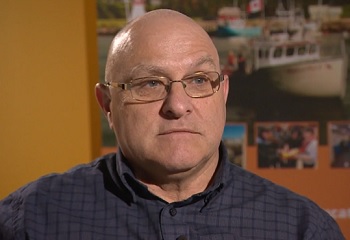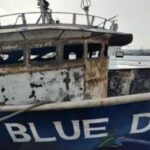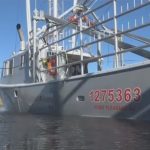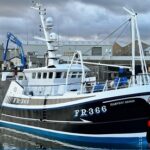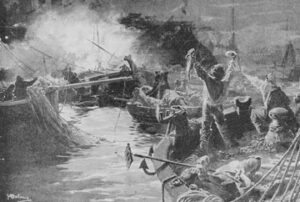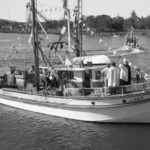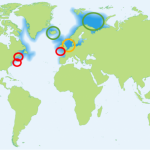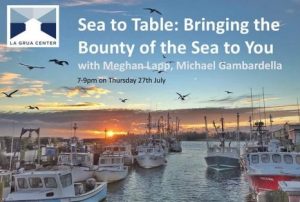Tag Archives: Leonard LeBlanc
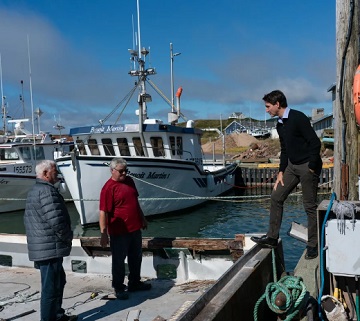
After Fiona’s wrath, Atlantic fishing communities look to rebuild livelihoods
All week, fishermen across Newfoundland, Prince Edward Island, Nova Scotia and New Brunswick were left to reckon with the damage left in Fiona’s wake, and to the region’s industry, which exports more than $4.5-billion worth of seafood each year. But as officials plan for the future, they face two competing priorities: the need to rebuild fast to be ready for the coming fishing season and the need to rethink infrastructure entirely in the face of climate change – a costlier, and potentially slower, approach. “PEI’s a mess. Newfoundland’s a mess. Nova Scotia’s a mess. And it’s all the same people who are fixing them,” said Leonard LeBlanc, President of the Gulf Nova Scotia Fishermen’s Coalition >click to read< 10:03
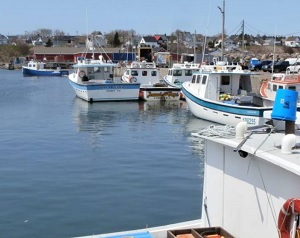
Northern N.S. lobster fishermen fear impact of Coronavirus on communities
Leonard LeBlanc says his phone has been ringing off the hook. The retired fisherman now the president of the Gulf Nova Scotia Fishermen’s Coalition, “Last night I had a call from a fisherman’s wife who was crying on the phone,” LeBlanc said. “She said ‘I don’t know what I’m going to do this spring. My husband is going to have to be separated from me for the entire fishing season. We have two young kids and he doesn’t want to take the chance to infect the kids with the virus.’” Fish harvesters and processors have been deemed an essential service by the federal government, but some are concerned going ahead with the season would be a recipe for disaster for their families and communities. >click to read< 11:43

Bernadette Jordan says harvesters have requested delays, and resists calls to shut down lobster fishery
The federal fisheries minister is resisting calls to close the Atlantic Canadian lobster fishery down completely this year in response to COVID-19. The pandemic shut down the market for luxury food on cruise ships and in restaurants, leading to the collapse of sales in Asian markets and leaving a glut of inventory that has increased with the lobster fishery ongoing in southwestern Nova Scotia.,, “There have been a handful of delays that have been asked for, but at this point the plan still is to open all fisheries.” >click to read< 15:18
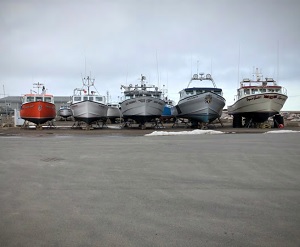
Coronavirus: Chéticamp residents worry out-of-province fishery workers could bring COVID-19
The snow crab season on the west side of Cape Breton Island usually starts in mid-April and the lobster fishery opens shortly after that. Some Chéticamp residents say out-of-province workers are already in town looking for employment at the fish processing plant and those workers are exempt from the usual requirement to self-isolate for 14 days. Chéticamp’s Sacred Heart Community Health Centre has 10 beds.,, LeBlanc said he asked the province two weeks ago to remove the self-isolation exemption for fish plant workers, but has not received a reply. “The government needs to reflect on this very quickly and appease the fear that the community has, and rightfully so,” >click to read< 08:46
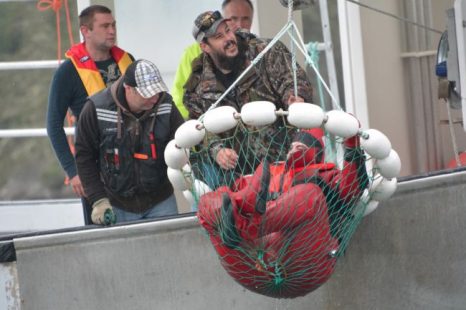
Fishing Industry sees workers compensation rates hit 20-year low thanks to safety campaigns
Stuart MacLean says it was a particularly dark event that helped spark a culture change when it comes to safety in the fishing industry: the sinking of the Miss Ally. Five young men from southwest Nova Scotia were lost at sea when their fishing boat was hammered by a raging storm in 2013. The incident gripped fishing villages everywhere, and MacLean, CEO of the Workers’ Compensation Board of Nova Scotia, believes it had a dramatic effect on the way fishermen approach safety today. “What’s happened in that sector is people have moved from knowing about it to caring about it,” he said. “And I think what people said is, ‘It’s not OK to keep losing people at sea.'” click here to read the story 18:12
$1.3-million for new safety gear coming for 600 N.S. fishermen
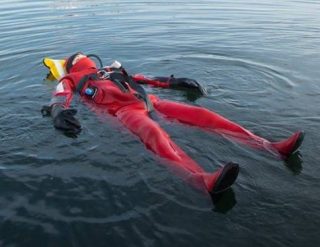 The Gulf Nova Scotia Fleet Planning Board is buying $1.3-million worth of safety equipment for 600 fishermen, it announced Friday. The equipment purchase includes 1,200 immersion suits, 600 emergency position-indicating radio beacons and 100 additional personal flotation devices. The Fleet Planning Board will also buy an automatic electronic defibrillator for each wharf in the Gulf of Nova Scotia. “We hope we never have to use this new equipment,” the board’s managing director, said in a news release. “But if it saves just one life then it was money very well spent.”,,, Click here to read the story 17:11
The Gulf Nova Scotia Fleet Planning Board is buying $1.3-million worth of safety equipment for 600 fishermen, it announced Friday. The equipment purchase includes 1,200 immersion suits, 600 emergency position-indicating radio beacons and 100 additional personal flotation devices. The Fleet Planning Board will also buy an automatic electronic defibrillator for each wharf in the Gulf of Nova Scotia. “We hope we never have to use this new equipment,” the board’s managing director, said in a news release. “But if it saves just one life then it was money very well spent.”,,, Click here to read the story 17:11






